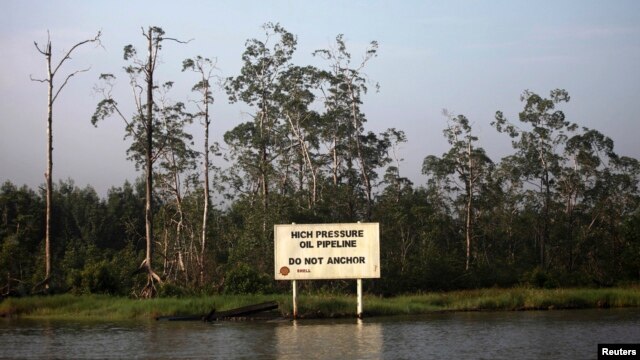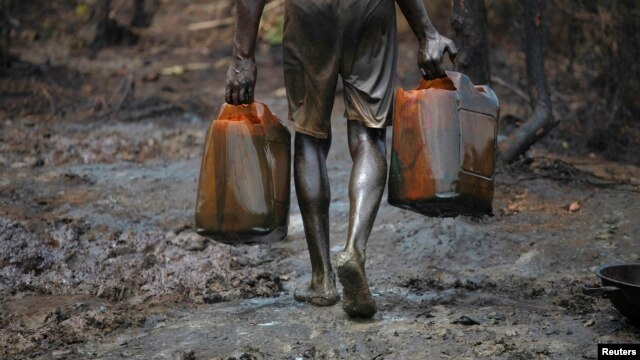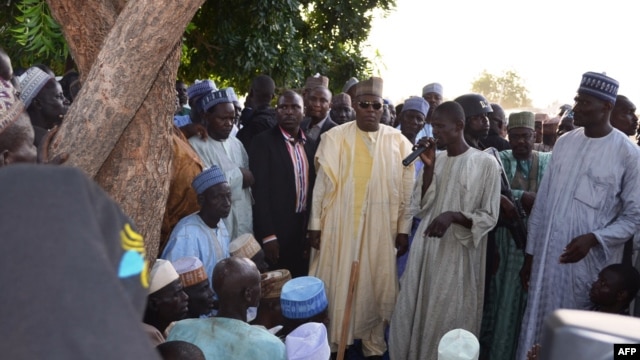NATO AIR
Senior Member
this is going to continue to be a major problem, and will only get even worse as the islamists take over the northern half's institutions...
http://www.washingtonpost.com/wp-dyn/content/article/2005/09/22/AR2005092201455.html
Followers Threaten Oil Facilities in Key Producing Region
By Craig Timberg
Washington Post Foreign Service
Friday, September 23, 2005; Page A14
ABUJA, Nigeria, Sept. 22 -- Mujahid Dokubo-Asari, a separatist leader in Nigeria's oil-producing south, was brought before a federal court here Thursday on charges of treason--a crime that carries the death penalty--while his angry followers reportedly seized at least one facility that controls oil pipeline flows.
The confrontation between Nigerian authorities and radical activists from the impoverished Niger Delta could put new pressure on global oil prices at a time when the destruction from Hurricane Katrina in the United States already is pushing prices toward historic highs.
In the delta, activists took control of at least one oil flow station, owned by the U.S. oil firm Chevron, and threatened more disruption. Police have sent reinforcements to Port Harcourt, the delta's largest city. Royal Dutch Shell, the region's largest oil company, evacuated nonessential staff.
Alali Horsfall, Dokubo-Asari's second-in-command in the Niger Delta People's Volunteer Force, said by cell phone Thursday that he and a force of 6,000 men, armed with machetes and dynamite, had taken over 10 oil flow stations and would not abandon them until their leader was freed from custody.
Horsfall declined to give his exact location, saying only that he was "in the swamp" somewhere in Rivers state. He said his group had confronted police but no one had been injured. He said that if police tried to retake the facilities by force, his group would begin to blow them up.
It was not clear whether the group was capable of causing widespread damage to the delta's oil production facilities. The region has dozens of flow stations, many protected by armed soldiers and police.
An army spokesman, Col. Yusuf Mohammed, said he believed only the Chevron facility had been seized. He said soldiers guarding it put down their weapons rather than "conduct a war with our own citizens." He said peace had returned to other areas of the delta, where protests erupted Tuesday after Dokubo-Asari was arrested.
Lisa Givert, a spokeswoman for Shell, said from London that the company knew of no takeovers of its flow stations. "Oil and gas production has not been affected," she said.
The Niger Delta exports 2.4 million barrels of oil a day, and Nigeria is the fifth-largest exporter of oil to the United States.
Dokubo-Asari, speaking to reporters after appearing in court in this capital city, accused President Olusegun Obasanjo of being a dictator. Obasanjo, who has held office since 1999, became Nigeria's first elected leader after decades of military rule.
"If this is what Obasanjo claims is democracy, it is the highest dictatorship," Dokubo-Asari said, according to the Reuters news agency.
A judge ordered him kept in custody at least until formal charges were brought at another court hearing, probably in two weeks. His arrest Tuesday came after an article in the Daily Independent newspaper quoted him as saying, "Nigeria is an evil entity. . . . I will continue to fight and try to see that Nigeria dissolves and disintegrates."
Dokubo-Asari is a heavyset, flamboyant man who often has boasted that he could shut down the region's oil flow with a few calls to supporters working in the industry.
He drives an elegant black SUV and carries a heavy walking stick, a traditional symbol of authority in Nigeria. Some of his youthful followers live in camps hidden among the delta's web of waterways.
A year ago, he issued a declaration of war against the oil industry, sending oil prices to record highs. But rather than being arrested or charged with a crime, he was flown here for negotiations with Obasanjo that eased the standoff.
In an interview with The Washington Post last year, Dokubo-Asari said, "It is only violence that makes the tyrant listen."
It was not clear why authorities decided to act now against Dokubo-Asari, who has long advocated autonomy for areas dominated by his Ijaw tribe.
The abundance of oil in the delta, where most residents live in abject poverty, has long been a source of tension and violent clashes. Many local politicians control armed gangs, which often clash over oil facilities and siphon gas by tapping directly into pipelines.
A well-known delta leader, Ken Saro-Wiwa of the Ogoni tribe, was hanged in 1995 with eight other activists by Gen. Sani Abacha, then the leader of Nigeria.


